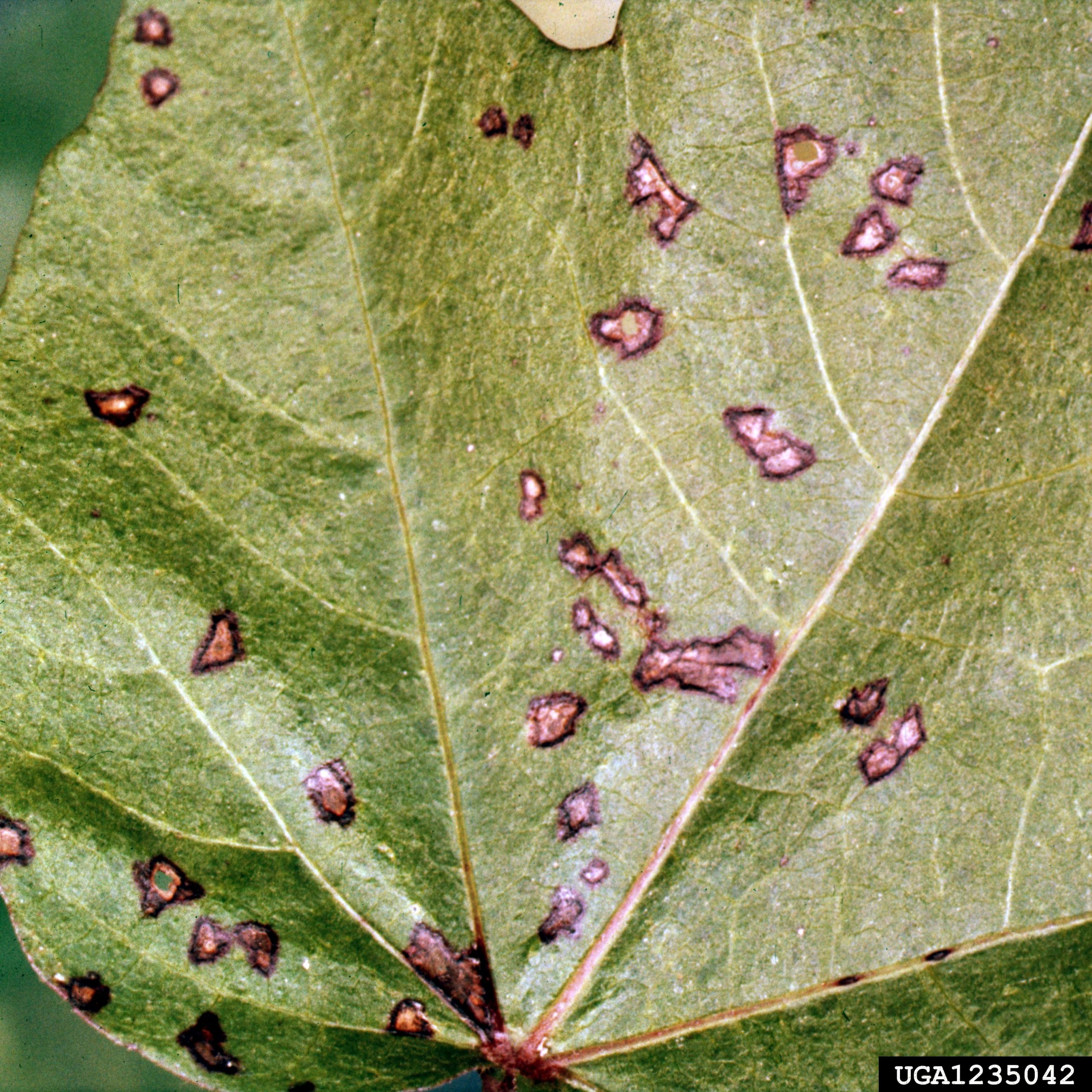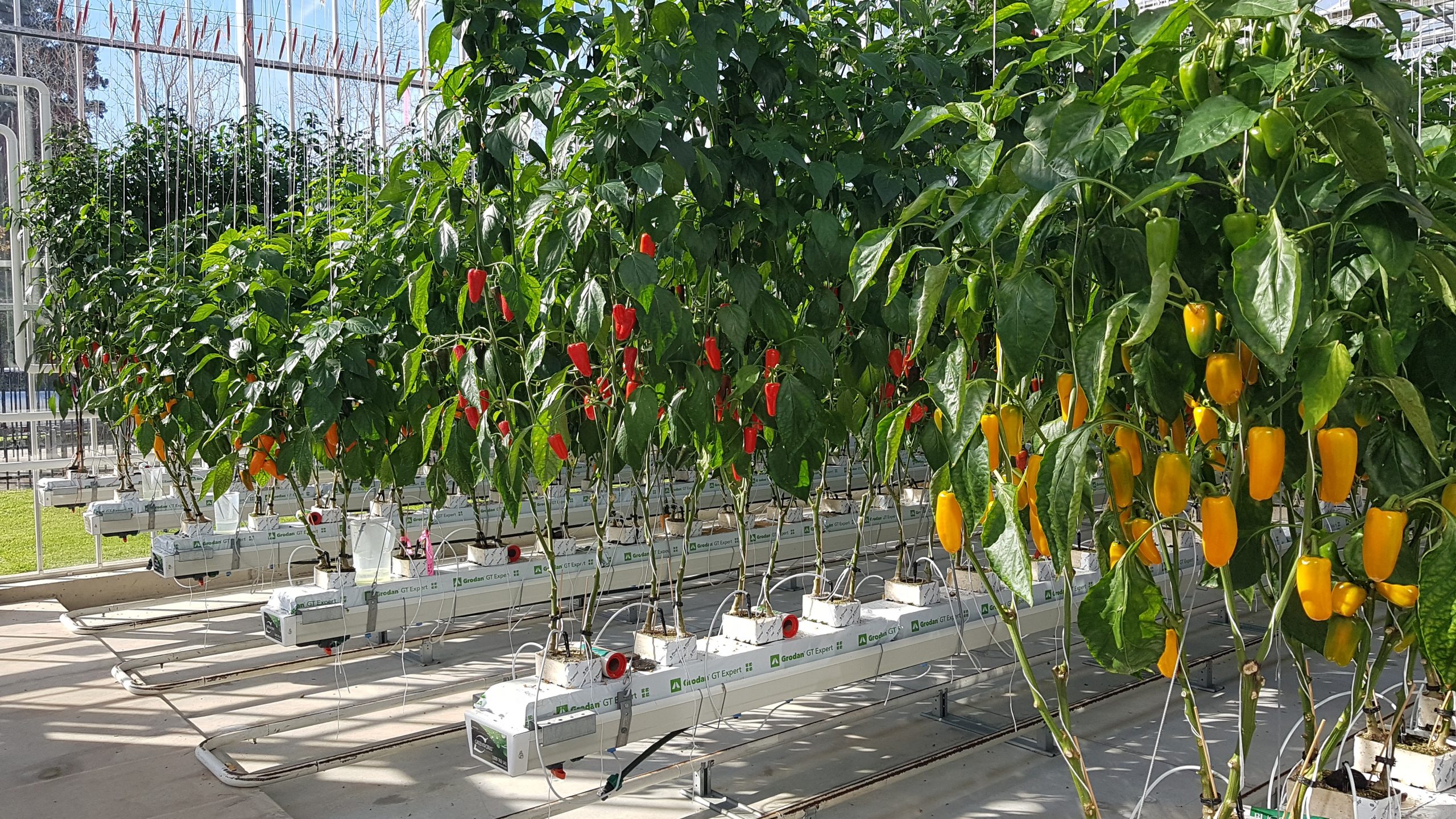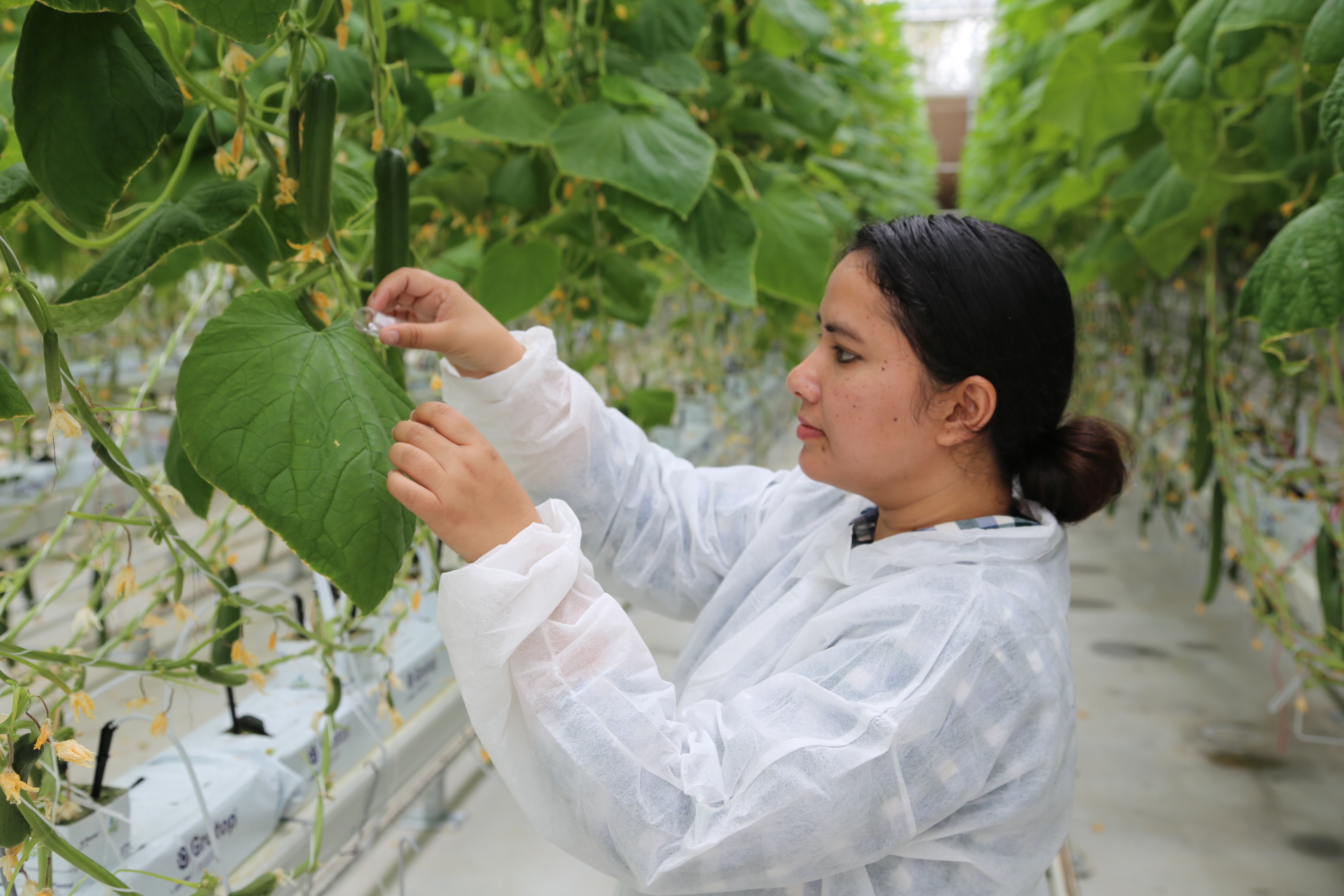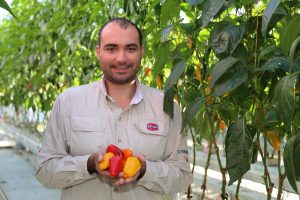
Giving Australian agricultural diagnostics a booster shot
14 September 2021
Fostering leadership in the protected cropping industry
14 September 2021Mamta Khadka Basnet recently graduated from Western Sydney University (WSU) with a Bachelor of Sustainable Agriculture and Food Security. Mamta enrolled in the Master of Science specialising in Greenhouse Horticulture after completing her degree, to understand about how greenhouse technology works for crop production.
“I am determined to study a degree based on protected cropping. With an ageing farmer population and climate change, I can see that the high-tech greenhouses could be the future of the agriculture. I like being in this industry because it plays a vital role in feeding the world. I love to be a part of a production system that has less environmental impact and is sustainable at the same time,” Mamta (pictured above) says.
Mamta received a taste of working on-farm over eight months from September 2020. She wasn’t able to attend the WSU Campus due to COVID-19 restrictions, so she says she used this situation to her advantage by applying for work at Costa Tomatoes in Guyra, which is located on New South Wales’ Northern Tablelands.
“Costa grows tomato varieties in hi-tech glasshouses that span 30 hectares. I worked as a crop worker, plant health officer and a trainee assistant grower,” she says.
For around two months as a trainee assistant grower, Mamta’s duties included monitoring plant growth and health; identify common nutritional issues in the crop production and recommendations; and assisting with planning for the management of all tasks associated with crop production.
“Working at Costa was a very valuable experience for me. I had managed teams in my previous job but managing a team in a production industry was a completely different experience,” Mamta explains.
“I learned how to monitor growth of the crop, quality control checks, water check, monitor and use mediums to control pests and diseases, and send daily and weekly reports on various topics to different stakeholders.”
At the time of writing, Mamta was still in her first semester where she has completed units on greenhouse crop production and greenhouse control systems.
“Right now, I am actively applying for jobs in the industry. The knowledge achieved from this course will have a big impact when working in the industry, because whatever we learn is practically applied in all greenhouse industries.”
Claudio Cortellazzi is currently studying a Master of Science, majoring in greenhouse horticulture. During his undergraduate studies, Claudio had undertaken units that were related to horticulture and protected cropping.
“I wanted to expand my knowledge and interest in protected cropping, so I decided to include those units in my degree,” he explains.
“I have learnt a lot about protected cropping and agriculture so far, such as how greenhouses work; smart farming; and the use of sensors, and how they can be incorporated in a greenhouse as well as the different building materials and how they can affect the growth of plants.
“This course has increased my interest and given me good insight about what one could expect working in a protected cropping sector.”
Prior to starting his Master course, Claudio wasn’t aware of the wide range of job opportunities in horticulture. It was not until he attended one of the workshops that he saw what was available.
“The teaching staff are very supportive in terms of making students aware of scholarships and internships, and helping the students apply for them,” he says.
At this stage, Claudio is focusing on completing his Masters, and in five years’ time he is hoping to have a well-established career in protected cropping – perhaps even working abroad.
Claudio’s advice for those who are thinking about undertaking the course is to “give it a go.”
“The units are very well-structured and class sizes are small, making teacher to student ratio interaction very good. If you are coming from a non-agricultural background, the learning content is easy to grasp as the units are structured to ease you into the information and not overwhelm you from the start.”
Acknowledgements
Emerging leaders in protected cropping is funded by the Hort Frontiers Leadership Fund, part of the Hort Frontiers strategic partnership initiative developed by Hort Innovation, with co-investment from Western Sydney University, Flavorite, Costa Group Holdings, Perfection Fresh, Australian Fresh Leaf Herbs, ICI Industries and contributions from the Australian Government.
Project Number: LP18000


